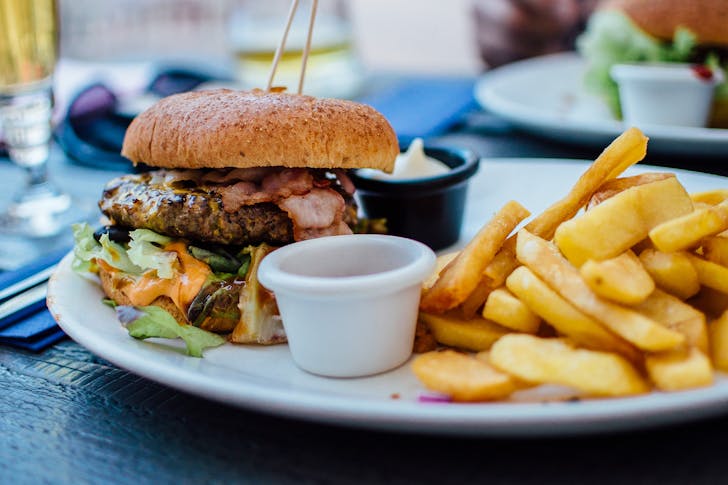If you have ever felt sluggish and ready to pass out after a big meal, you have probably experienced a food coma. This not-so-scientific term describes the drowsy, lethargic feeling that hits after eating a hefty meal, especially one loaded with carbs, fats, or sugar.
It is more common than you might think. While it is not exactly dangerous, it can certainly throw off your day.
What Is a Food Coma?
A food coma, medically known as postprandial somnolence, is that wave of sleepiness that creeps in after you eat. You feel heavy, like all your energy has been zapped. Your body slows down, and all you want to do is curl up on the couch.

Robin / Pexels / A food coma - AKA postprandial somnolence - is a real physiological reaction to excess eating.
When you eat, your body directs blood to your stomach to help with digestion. At the same time, it slows down other functions, like mental alertness, making you feel tired.
What Causes a Food Coma?
Large portions and unbalanced meals are the biggest culprits behind food comas. If your plate is piled high with carbs like pasta, bread, or sweets, your body releases a flood of insulin to process the sugar. This triggers a spike in serotonin and melatonin, hormones that make you feel relaxed and sleepy.
However, fatty and greasy foods don’t help either. They take longer to digest, keeping your stomach busy for hours. Meanwhile, your brain doesn’t get the energy boost it needs to stay sharp, so you feel groggy.
Eating quickly or skipping meals before a feast can also amplify the effect.
What Are the Telltale Symptoms?
You will know you are in a food coma when you feel sluggish, unfocused, and ready for a nap. It is like all the energy in your body has been drained and sent straight to your stomach.
Some people also experience bloating, discomfort, or brain fog. Depending on how much they eat and how their bodies process food, these symptoms can last for a couple of hours.
Why Do Some Meals Hit Harder?
Not all meals are equal when it comes to triggering a food coma. Meals that are high in refined carbs and sugar, like pancakes with syrup or a giant bowl of pasta, are often the worst offenders.
These foods cause your blood sugar to spike and then crash, leaving you wiped out.

Jane / Pexels / Meals with balanced portions of protein, healthy fats, and fiber are less likely to knock you out.
They provide steady energy and don’t overload your digestive system, so you feel satisfied but not sleepy.
Can You Avoid a Food Coma?
Yes, you can sidestep a food coma with a few smart choices. Start by eating smaller portions. Your stomach is not bottomless, and overeating forces it to work harder than it should. Listen to your body. Stop eating when you are satisfied, not stuffed.
Next, aim for balanced meals. Include protein, veggies, and healthy fats alongside carbs to slow down digestion and keep your energy steady.
Apart from that, chewing slowly and drinking water during your meal can also help prevent that post-meal slump.
Eat on Time & Get Moving
When you eat can also impact whether you end up in a food coma. Big meals late at night are a recipe for disaster because your body is already winding down for sleep. Instead, try to eat your heaviest meals earlier in the day when you are more active.
Speaking of activity, moving around after a meal can work wonders. A short walk helps digestion and keeps your blood flowing, making you feel more energized. Sitting still or lying down, on the other hand, only amplifies the sluggishness.





